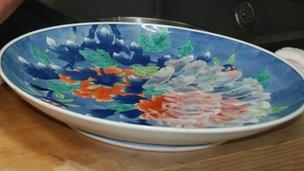I've mentioned Critical Thinking as a process to solve problems, to resolve issues; to handle disputes, and to effectively manage both personnel and businesses. Let me share a video about the Ooda Loop, which was the basis of a fighter pilot who claimed (and correctly so) that he could evade an enemy pilot trying to target him WITHIN 60 SECONDS. That meant this individual used Critical Thinking to not only save his life, but to GET THE JOB DONE. And sometimes, it takes Critical Thinking and ANALYSIS to do so.
In the movie Margin Call, which I share with my MBA students, at the boardroom meeting, the CEO says to his Chief Financial Officer, "It's 4:00 [a.m.}. You have until 5:00 {a.m.} to break this down and get me out a plan {of action to liquidate assets that are toxic in volatility to the company}." And the CFO nods because there is no other course of action other than to do what he's told!
THEN the CEO asks who else knows about the nature of the company's problems. He's informed by the Chief Risk Officer AND the CFO that this individual is no longer employed--and the CFO adds that they have been trying to locate him. The CFO turns to another person--whom we don't know in official capacity--and tells him by name, "Get me {this individual"} here by 6:30 a.m., AND THE MAN AGREES TO THE REQUEST. HE DOESN'T COMPLAIN, ARGUE, OR CHALLENGE THE REQUEST. HE WILL GET IT DONE.
My point in this: are you capable of getting the job done even if it is an obvious challenge? I mean this in life as well as management or any other profession you choose. I'm also saying with just about 70 years of experience: Life will and does throw challenges at all of us. What are you willing to do in order to solve problems that may only be temporary distractions? ESPECIALLY if you want to run your own company/business or you want to work for someone else--WHAT ARE YOU WILLING TO DO IF IT REQUIRES CRITICAL THINKING SKILLS AND ACTION?
I'll share with you a real-life event that happened to me when I was teaching public speaking at Jiangxi University in China @spring 2017: my students were not listening to me that day and totally distracted from my lesson. And that was enough to agitate me to ask what and why--because it was against my standards of behavior. And they said, "We are sorry, but our next class is up in 20 minutes, and we don't understand the assignment. Our professor is VERY strict {yes, they, as students, could be and were physically and verbally abused for failure}."
So I made an immediate decision: "Put aside everything for me, and let me see this assignment." It was about finance--and it was several pages of a handout. I read it quickly: "Assess and describe the implications of 'A Double Dutch Twist with an Irish Treat' regarding Apple, Inc., and taxation procedures."
Huh? Well, first, I don't teach finance, nor is it an area of my interest nor expertise. BUT I CAN READ AND COMPREHEND TEXT AND DOCUMENTS. (I once had to proofread a friend's Ph.D. analysis of animal husbandry/management for the effective production of pigs. I also have no background in that--but I could understand from what she wrote.) So what I did was to break down the finance assignment BECAUSE I COULD READ AND UNDERSTAND THE MESSAGE BEHIND THE PACKAGE GIVEN TO THE STUDENTS because I could critically think about what I was reading.
In short: Apple, Inc., was rerouting pre-tax capital gains through two banks in the Carribean islands owned by the Netherlands (Dutch) country. After they were "processed," the monies were then sent to a bank in Ireland--and THEN re-routed back to Apple, Inc., at a lower tax rate. "A Double Dutch Twist with an Irish Treat." And my students were so thankful that I had not only solved their confusion at the title but also the value of the lesson ahead--and possibly spared them from some physical pain and worse.
And I also told them: "DON'T tell the professor in the next class that I helped you. Tell him that YOU all figured it out yourselves. Let HIM think that you're smarter, better, and prepared." Oh, you'd better believe that they were grateful. And I was thankful for the chance to help--and also that I had learned again how valuable critical thinking skills could be. My point is simple: I had 20 minutes to solve the needs for my students.








